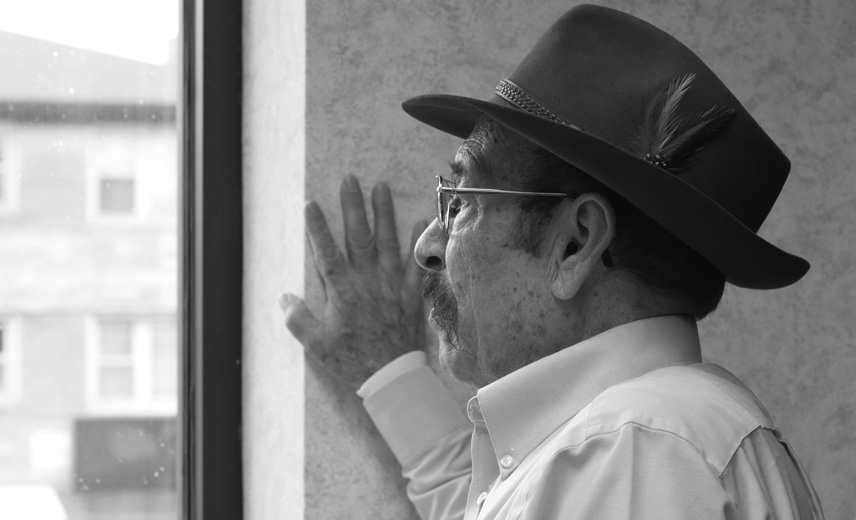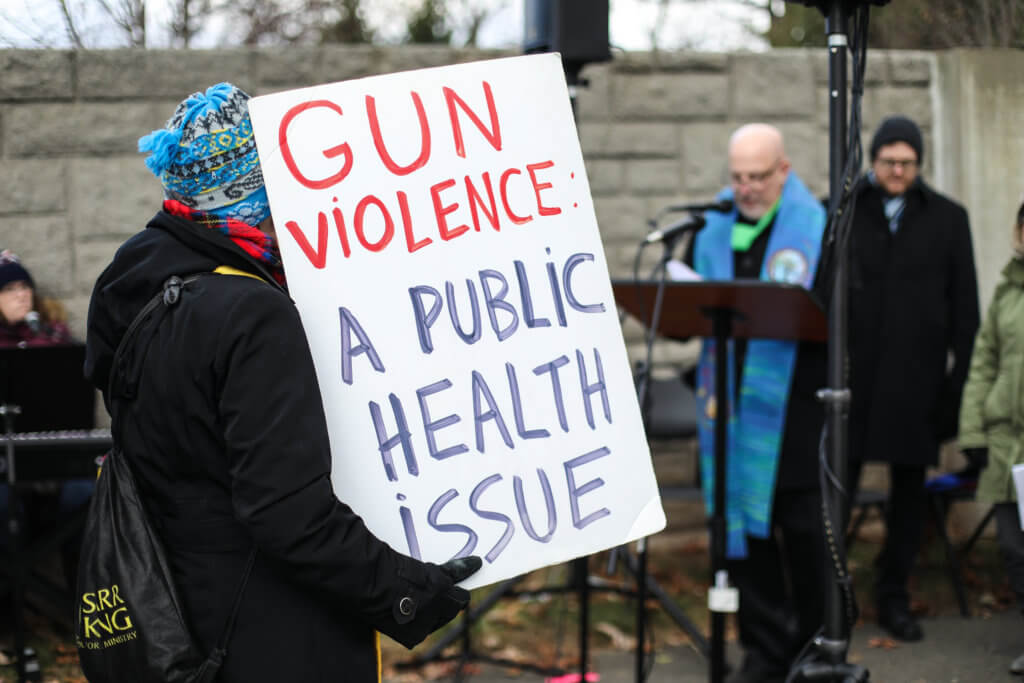The State of Latino Children’s Mental Health
Guest post by Amelie G. Ramirez, Director, Institute for Health Promotion Research, UT Health San Antonio
Did you know that U.S. Latino kids are far more likely than their peers to suffer depression and other mental health issues that often go untreated?
A new research review, Salud America! Mental Health & Latino Kids by our Salud America! national network for healthy change at UT Health San Antonio, examines the latest science on the state of mental health among Latino kids, and shares policy recommendations.
Keep up with the latest from UnidosUS
Sign up for the weekly UnidosUS Action Network newsletter delivered every Thursday.
The review shows that violence, discrimination, migration, poverty, bullying, and family issues impact Latino children’s mental health and access to mental health care in different ways.
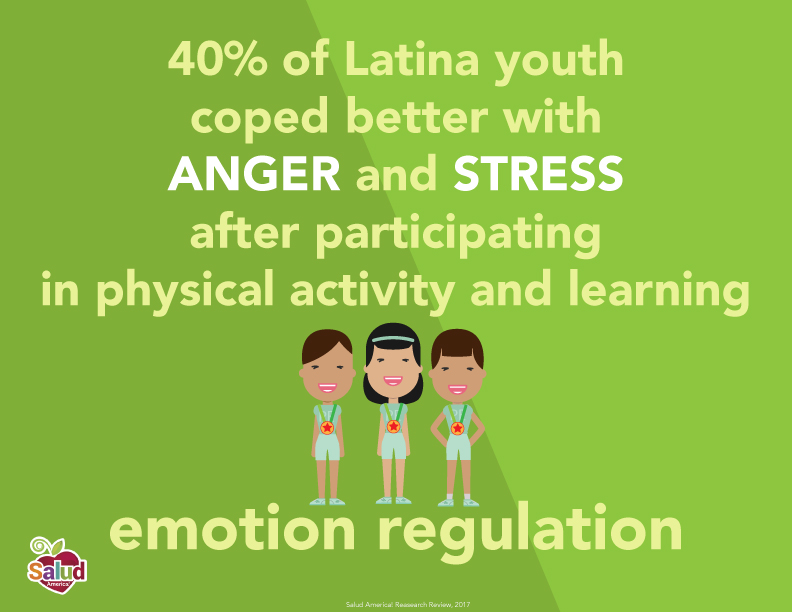
Here are just a few startling facts:
- 22% of Latino youth have depressive symptoms, a rate higher than any minority group besides Native American youth.
- Latina high-schoolers are more likely to attempt suicide than their white peers (15.1% to 9.8%).
- Thoughts of suicide were between 2.3 and 8 times higher for Latino students who felt low levels of connectedness and communication within their families.
- The migration experience causes stress, anxiety, and depression in Latino children.
- 2% of Latino students report being bullied at school. Race-related bullying has negative emotional and physical health effects.
- Depression among U.S.-born Latino high schoolers is significantly associated with discrimination from teachers/students.
- Fewer Latino kids (8%) than white kids (14%) have ever gotten mental health care.
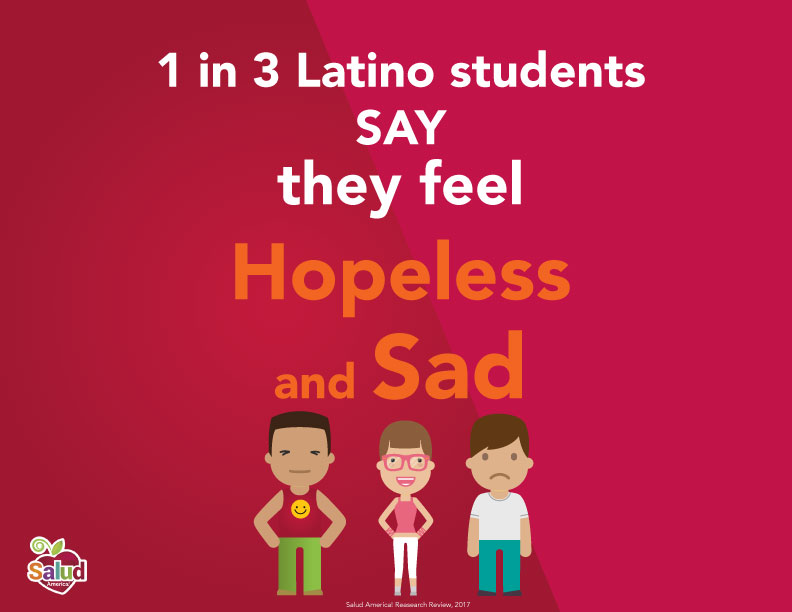
Fortunately, our Salud America! Mental Health & Latino Kids research review also showcases innovative programs and policies to boost healthy minds in schools and communities:
- School-based bullying prevention programs can decrease bullying by up to 25%.
- Latino children who participated in a P.E. class three times or more a week reported less sadness than those who took it two times or less a week, one study found.
- A program with bilingual school social workers reduced depressive symptoms in Latino 3-9-graders who had PTSD.
- A program with home visits and educational sessions led to higher levels of school engagement among Latino 7th-graders and reduced stress, another study found.
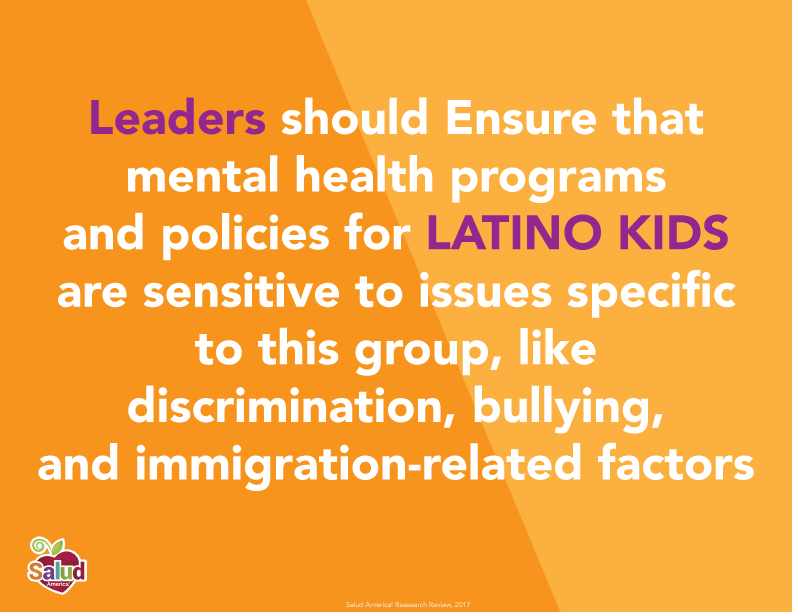
Our Salud America! research makes these top recommendations:
Program leaders, school leaders, and healthcare providers should ensure that mental health care for Latino children is sensitive to issues among this group. These issues include bullying, discrimination, and other immigration-related factors.
Providers should diversify the mental health workforce, expand culturally oriented training, and increase access to mental health care interpreters and promotoras.
Schools and nonprofits should incorporate culturally-relevant mental health programs.
Healthcare providers, for example, can follow the lead of leaders of clinic group in Maricopa County, Ariz. (30% Latino).
Dr. Avein Saaty Tafoya and Lisa Blue of Adelante Healthcare System recognized healthcare barriers facing Arizona Latinos. So they started to seek grants and partnerships to add personnel to expand beyond their historical focus on primary care.
Today their team has primary care physicians, specialists, health coaches, mental and behavioral health social workers, and others who connect families to insurance.
“The way we do things now, with this model, it allows each of us to have the type of care that our patients truly need,” Blue said.
Explore the research: salud-america.org/healthymindsresearch.
Find more stories and tools for change: salud-america.org/issues/healthy-minds.
We simply must act now to create a culture of health where Latino and all families can live, learn, work, and play better.
Amelie G. Ramirez, Dr.P.H., an internationally renowned health disparities researcher, is director of the Institute for Health Promotion Research at UT Health San Antonio. She also is director or the Salud America! national network to drive healthy community change for Latino children and families, accessible at salud-america.org or @SaludAmerica on social media.
Find out more about UnidosUS’ work on mental health issues and how it impacts the Latino community.
